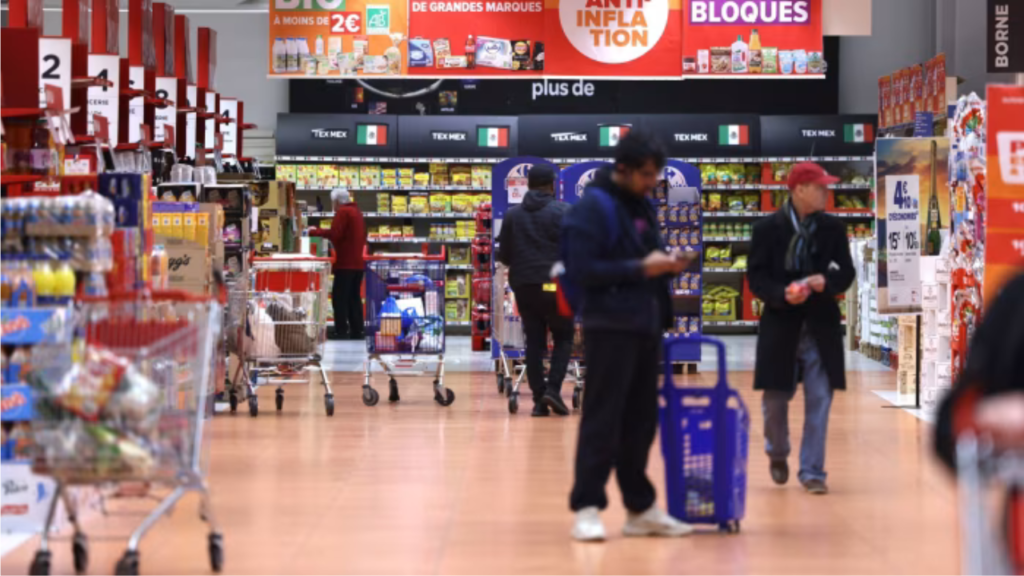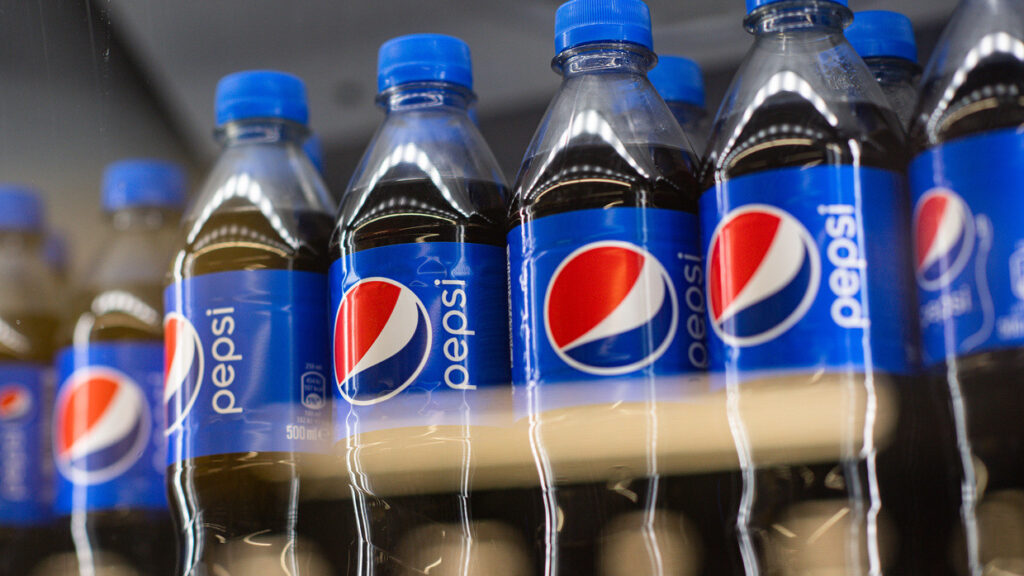The company that makes Pepsi, Lay’s, and 7-Up, according to grocery operator Carrefour, is maintaining its food prices “unacceptably” high even as inflation declines.

Europe’s economic news have been dazzling lately: Official statistics indicate that inflation is finally starting to decline. However, when customers visit the supermarket, they still have to deal with exorbitant costs.
The largest food retailer in France responded to the crisis head-on on Thursday, declaring that it would stop selling PepsiCo products because the prices were “unacceptably” high for customers. This move escalated a campaign by French retailers to expose and expose companies that refuse to reduce their prices as inflation starts to decline.
Global retail behemoth Carrefour posted posters on Thursday in all 3,440 of its French shops, which normally showcase PepsiCo products such as Quaker cereal, Lay’s potato chips, and Pepsi and 7-Up soft beverages. The banners read, “We are no longer selling this brand due to an unacceptable price increase.”
“We have been in discussion with Carrefour for many months and we will continue to engage in good faith in order to try to ensure that our products are available,” a Pepsi representative stated.
The action was the most recent attempt—supported by the French government—to coerce food producers into cutting prices, which have been plaguing families even as a general deceleration in price hikes throughout Europe has occurred.
Finding companies that also participate in shrinkflation—manufacturers that reduce food packaging while keeping or increasing the price—is one aspect of that approach.
The European Central Bank’s vigorous campaign of interest rate increases and European nations’ attempts to lower energy and food prices caused inflation in the eurozone to drop considerably quicker than anticipated in November, to a new two-year low. In December, France’s inflation rate increased at an annual pace of 3.7 percent, which was a third less than a year earlier.
But the increase of food prices is particularly enduring. From spaghetti to yogurt, the average French food basket still has 7% more items in it than it did a year ago.
Some manufacturers have defended those expenses by claiming that Europe’s profit margins are lower than normal due to the region’s comparatively high input costs. “The extent of price increases, whilst historically high, has still not been enough to cover the cost inflation that we have experienced,” Unilever’s chief financial officer, Graeme Pitkethly, told analysts in October.
France has been putting pressure on manufacturers and retailers to lower prices for more than a year. According to supermarket sales, France is the largest grocery market in Europe.
Following more than a year of record-high prices, largely due to Russia’s invasion of Ukraine, President Emmanuel Macron has stated that he wants to see food prices drop by at least 5% in order to reflect an overall fall in raw material costs.
In order to provide consumers with more relief sooner, he insisted in November that the deadline for the once-a-year price talks between French retailers and manufacturers be advanced by two months, to the end of January. Additionally, France has proposed to the European Union requiring food stores to implement a shrinkflation labeling campaign. Carrefour has begun placing signs on its shelves that describe the extent of shrinkage and the amount that customers were being overcharged.
“We want to get these big companies back around the table and achieve price reductions as quickly as possible. They are driving up the prices of some of their brands,” Mr. Macron stated. “Seeing so many households forced to make decisions about basic necessities is intolerable.”
In the last year, a large number of international consumer goods corporations hiked their prices by double digit percentages. They frequently blamed the increases on rising labor and ingredient expenses. Many of those businesses have also reported growing profits at the same time as they are selling fewer products at higher prices.
Companies have stated that high loan rates and inflation have made shopping more difficult for consumers in recent months. Consumer goods companies, such as PepsiCo, have noted that consumers are becoming more frugal.

During an October earnings call, PepsiCo’s chief financial officer, Hugh Johnston, stated to analysts, “I do think that we see the consumer right now being more selective.” “Some orientation toward values is evident.”
Retailers want to see price reductions. Walmart executives expressed relief about general product costs reducing ahead of the holiday season, but they were concerned about persistently high food prices. Walmart is the largest retailer in the United States.
Walmart CEO Doug McMillon told analysts in November that while the areas of disinflation the company is witnessing are encouraging, “we’d like to see more, faster, especially in the dry grocery and consumables categories.”
The French action is part of a larger European push to address a persistent cost-of-living challenge that has persisted despite weak economic growth. Europe’s economy has been following a radically different trajectory than the United States’, with a prolonged downturn brought on by high interest rates and the ongoing effects of the oil crisis caused by Russia’s conflict in Ukraine.
The Italian government has made an effort to put manufacturers and retailers under pressure to lower food costs. Supermarkets are now required by Greek law to disclose the prices they charge for staple items.
Several major French grocery stores hinted that they might do the same. The president of Leclerc, a significant food retailer, Michel-Edouard Leclerc, stated in an interview on French radio on Tuesday that “it’s not over.” He continued by saying that a lot of food manufacturers were still requesting six to eight percent price rises.

